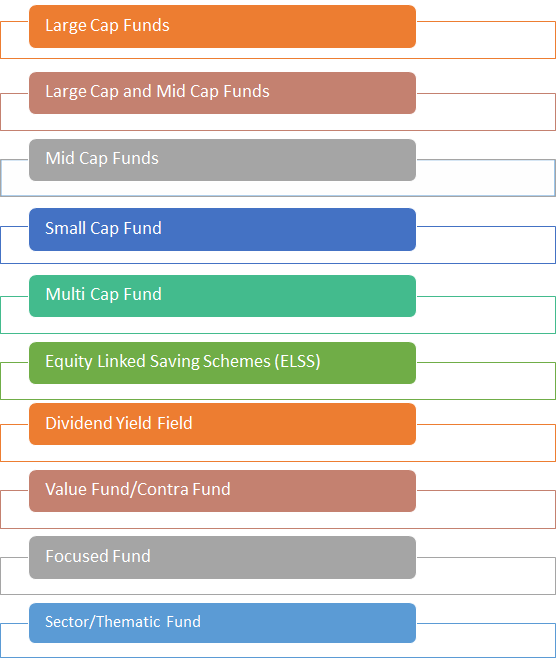
Table of Contents
Your Complete Guide to Interval Mutual Funds
In the diverse world of Mutual Funds, the Securities and Exchange Board of India (SEBI) classifies various types to help investors make informed decisions. Among these classifications are open-ended funds, closed-ended funds, and interval funds. This post delves into interval mutual funds, exploring their types, advantages, and operational details.
What Are Interval Funds?
Interval Funds are a unique category of mutual funds that combine characteristics of both open-ended and closed-ended funds. These funds invest in equity, debt instruments, or a blend of both. Unlike traditional mutual funds, Interval Funds allow transactions—buying or redeeming units—only during specific, predetermined intervals.
How Do Interval Mutual Funds Operate?
Interval Funds blend features of open-ended and closed-ended funds:
Investment Strategy: They enable fund managers to devise robust investment strategies without frequent Redemption concerns due to restricted transaction intervals.
Purchase and Redemption: Investors can buy or sell units only during the designated intervals at the prevailing Net Asset Value (NAV). Some interval funds may also be listed on stock exchanges.
Comparing Interval Funds to Other Mutual Funds
Open-Ended Funds: Offer daily liquidity, allowing investors to buy and redeem units at the NAV every trading day.
Interval Funds: Provide limited liquidity. Repurchase offers are made periodically (usually quarterly), and if redemption requests exceed 5% of total shares, they may be redeemed pro rata.
Talk to our investment specialist
Characteristics of Interval Mutual Funds
1. Risk and Return Profile
Interval Funds typically exhibit high illiquidity due to their restricted redemption windows. As a result, investors may face challenges accessing funds during emergencies. They generally offer returns between 6-8% over five years, with lower returns for shorter durations.
2. Alignment with Investment Strategy
Investors with an investment horizon aligned with the fund’s maturity date may benefit from interval funds. While they can invest in both debt and equity, most are debt-oriented, making them suitable for those with a conservative risk profile.
3. Tax Implications
Taxation depends on the fund’s Asset Allocation:
Equity Funds: If at least 65% of assets are in equities, long-term Capital gains are taxed at 10% without indexation.
Debt fund: If at least 65% of assets are in debt instruments, long-term Capital Gains are taxed at 20% with indexation. Short-term capital gains are taxed as per the investor’s Income slab.
Who Should Consider Investing in Interval Funds?
Interval Funds cater to:
Investors with Short-Term Goals: Those whose investment horizon matches the fund’s intervals.
Moderate Risk Tolerance: Investors seeking relatively conservative returns.
Alternative Asset Seekers: Individuals interested in non-traditional assets like Real Estate or Business loans.
Things to Consider Before Choosing Interval Funds
1. Risk Factor
Interval Funds are Illiquid, which may pose challenges in emergencies. Redemption is only possible during specified intervals, and secondary markets are not available.
2. Return Potential
Typically, interval funds offer annualised returns of 6-8.5% over five years. Returns may be lower over shorter periods compared to other funds.
3. Investment Horizon Alignment
Aligning your investment horizon with the fund’s maturity date is crucial. Interval Funds are better suited for investors with clear goals for lump sum payouts at maturity.
4. Financial Objectives
Ideal for those seeking fixed-income investments with moderate risk, interval funds suit investors who need predictable outcomes aligned with their investment timeline.
Fees and Expenses
Interval Funds may incur fees similar to other mutual funds, including:
Management Fees: Potentially higher due to specialized asset management.
Redemption Fees: Typically up to 2% to cover repurchase costs.
Conclusion
Interval Funds offer a distinct investment opportunity in India, combining elements of both open-ended and closed-ended funds. With periodic liquidity and a focus on debt or mixed assets, they suit investors with short-term goals and moderate risk tolerance. Understanding the unique features, risks, and benefits of interval funds is essential for making informed investment decisions. With careful planning, interval funds can complement your investment Portfolio and help achieve your financial objectives.
All efforts have been made to ensure the information provided here is accurate. However, no guarantees are made regarding correctness of data. Please verify with scheme information document before making any investment.











